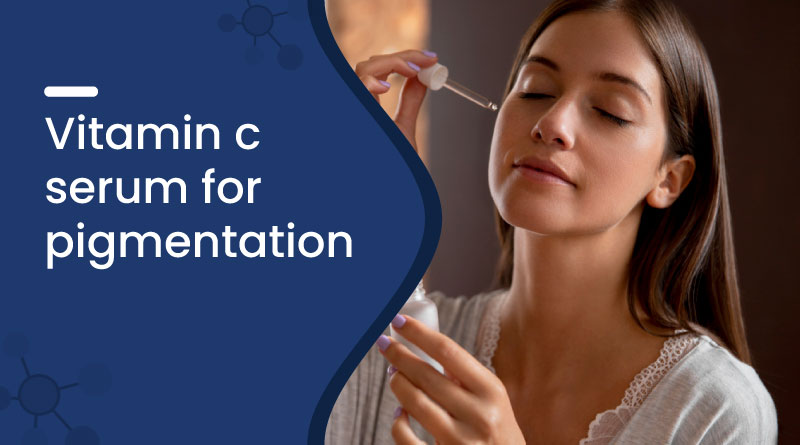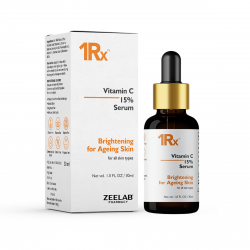Best Vitamin C Serum for Pigmentation Removal


Vitamin C serum for pigmentation is one of the most popular skincare solutions used to treat uneven skin tone and dark spots. Vitamin C fades pigmentation, brightens skin, and boosts collagen. If you’re struggling with dark spots, sun damage, or acne scars, this blog will help you understand how Vitamin C serum can be your go-to solution.
How Does Vitamin C Serum Help with Pigmentation?
Vitamin C serum for pigmentation works by blocking the enzyme tyrosinase, which your skin uses to produce melanin. Less melanin means fewer dark spots and a brighter complexion. It also protects your skin from UV-induced damage, one of the major causes of pigmentation.
- Reduces dark spots and acne marks
- Brightens dull, uneven skin
- Improves skin texture over time
- Prevents future pigmentation caused by sun exposure
How to Use Vitamin C Serum for Pigmentation?
Using Vitamin C serum for pigmentation correctly is crucial to seeing results.
Simple steps to follow:
- Cleanse your face with a mild face wash.
- Apply 2–3 drops of Vitamin C serum on damp skin.
- Gently pat it in using your fingertips.
- Apply moisturizer and sunscreen after.
Use it once daily, preferably in the morning. Consistency is key—visible results often show after 4–6 weeks of regular use.
What Type of Vitamin C Serum is Best for Pigmentation?
Not all Vitamin C serums are created equal. When choosing a Vitamin C serum for pigmentation, keep the following in mind:
- Concentration: 10% to 20% is ideal for effective results without irritation.
- Form: Look for L-Ascorbic Acid, the most potent and researched form.
- pH Level: Should be between 2.5 to 3.5 for maximum absorption.
- Packaging: Dark glass bottles or air-tight pumps are best to preserve potency.
Also, pairing Vitamin C with Ferulic Acid, Vitamin E, or Hyaluronic Acid can boost results.
How Long Does Vitamin C Take to Fade Pigmentation?
Most users start seeing improvements in their pigmentation within 4 to 8 weeks of consistent use. However, the timeline depends on:
- Severity of pigmentation
- Skin type and sensitivity
- Consistency in application
- Proper sun protection
Stubborn spots may take 12 weeks. But with patience and proper skincare, results are achievable.
Also Read - Vitamin C Tablets for Skin
Are There Any Side Effects of Using Vitamin C Serum for Pigmentation?
Vitamin C is generally safe for all skin types, but in some cases, it may cause:
- Mild redness in sensitive skin
- Breakouts, if used with incompatible products
- Stinging sensation, which usually fades as your skin adjusts
To avoid this, always patch-test before full application and start with a lower concentration if you're a beginner.
Frequently Asked Questions
Q. Can I use Vitamin C serum daily for pigmentation?
A. Yes, you can use it once daily. Start low and increase gradually.
Q. Should I apply Vitamin C serum in the morning or night?
A. Morning is best, as it protects against UV damage and environmental stress.
Q. Can I mix Vitamin C serum with other active ingredients?
A. Avoid using it with AHAs, BHAs, or retinol at the same time to prevent irritation. Use them at different times of the day.
Q. How long before Vitamin C serum shows results on pigmentation?
A. You may start seeing visible changes in 4–6 weeks, with full results in 2–3 months.
Q. Is Vitamin C serum safe for all skin types?
A. Yes, but people with sensitive skin should start with a lower concentration and perform a patch test.
Conclusion
Vitamin C serum for pigmentation is a scientifically backed and dermatologist-recommended solution to tackle dark spots and uneven skin tone. When used consistently and correctly, it can lead to visibly clearer, brighter, and more even-toned skin. Remember to choose the right formulation, protect your skin from the sun, and stay patient—the glow is worth the wait.









 Added!
Added!